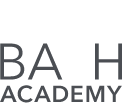Starting your academic studies in January can be an excellent decision for many students, offering flexibility, a fresh start, and an opportunity to catch up or specialise in subject(s) of interest, or achieve a lucrative one or two grade improvement. Whether you’re looking to enhance your grade profile, retake a subject for better results, or explore a new direction of study entirely, January offers several unique advantages.
A Fresh Start and Motivational Boost
For students who may have found the traditional school year overwhelming, starting a short course in January provides a clean slate. The new year is often a time of reflection and goal-setting, making it an ideal time to re-energise your outlook and steel yourself in your determination. After the winter break, you can approach your studies with renewed vigour and focus.
This fresh beginning can be particularly advantageous for students who feel that their current academic trajectory isn’t the best fit. Whether you’re changing subjects, catching up after a gap year, or simply re-connecting with learning, starting an A-level course in January can offer a sense of new beginnings and possibilities.
Avoiding the Summer Rush
By starting your academic studies in January, you avoid this initial rush. Many institutions may have fewer students enrolled in mid-year courses, allowing for a more personalised experience with smaller class sizes and better access to exemplary teaching (both of which Bath Academy pride themselves on). This can be especially valuable for students who benefit from more direct interaction, dedicated support, and a tailored learning plan.
Additionally, with fewer students starting mid-year, there may be less pressure and fewer distractions. This can lead to a more focused learning environment, which is particularly useful for students who struggle with large, crowded, and distracting classrooms.
Catch-Up or Retake Opportunities
For students who did not achieve the desired results in their A-levels previously, January offers a perfect opportunity for retakes or to catch up on essential missed topics. A short course allows for targeted revision and learning, helping students specifically focus on dedicated areas where they need to improve. This way, they can sit their exams at the same time as other students in the summer, effectively giving them a second chance to succeed.
Moreover, students who may have faced personal difficulties or disruptions to their education in the past can use a January start as a way to get back on track. Whether it’s health-related issues, family matters, or other challenges, the January intake offers a chance to refocus and continue your education without falling behind.
Specialised Learning
A short course in A-levels in January can also be a way to specialise in subjects that you are particularly passionate about or need for specific career or university aspirations, for example, the sought after STEM degrees at Oxford and Cambridge. Some students may decide to take additional subjects to supplement their qualifications or dive deeper into a subject of interest that they may not have studied before. For example, you might have chosen to study one science subject initially but decide to add another complimentary subject such as Psychology or Economics. Starting a January short course with Bath Academy allows you to tailor your learning to meet your individual goals and achieve entry to your dream university. 85% of our students this September did just that.
More Time to Focus on Exams
By starting the A-levels in January, students often have a more condensed, but highly focused study period, meaning less time is spent on the day-to-day classroom experience and more time can be allocated to exam preparation. This can be helpful for students who prefer shorter but more intense learning periods, with ample opportunity to revise before the summer exams. Bath Academy supports students with their UCAS application before the deadline at the end of January. Many institutions will not have filled all their places and wait for all UK students to apply by the 29th January 2025 before sending offers.



